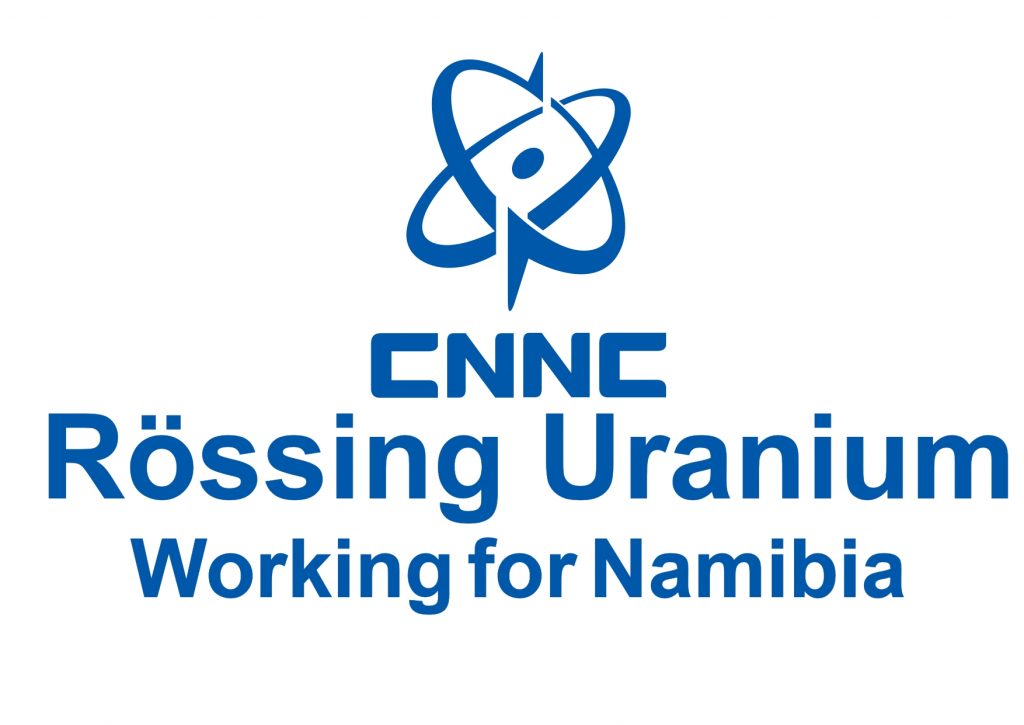Four Rössing Uranium employees took up the challenge as mentors, to coach scholars as part of a unique learning and development partnership.
The mentorship initiative falls under the Rössing Foundation learner support programme in the Erongo region of Namibia. The initiative is hosted by CNNC Rössing Uranium with employees volunteering to share information about their own career paths, providing guidance and motivation on how to aim for realistic goals. The mentors are linked to the Rössing Women-in-Mining (WiM) group. Mentors have been paired up with four mentees, who are the first beneficiaries of this grand initiative.
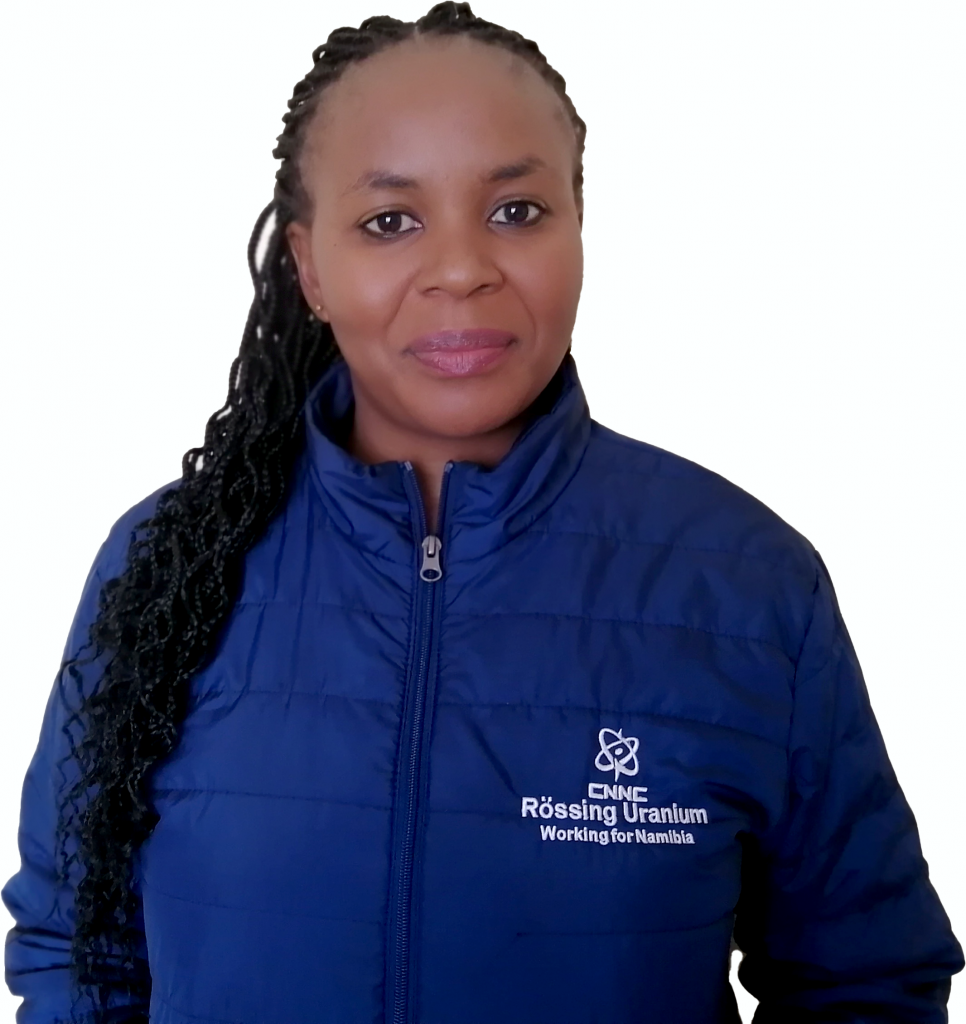
Loide Hausiku, Environmental Advisor at Rössing Uranium 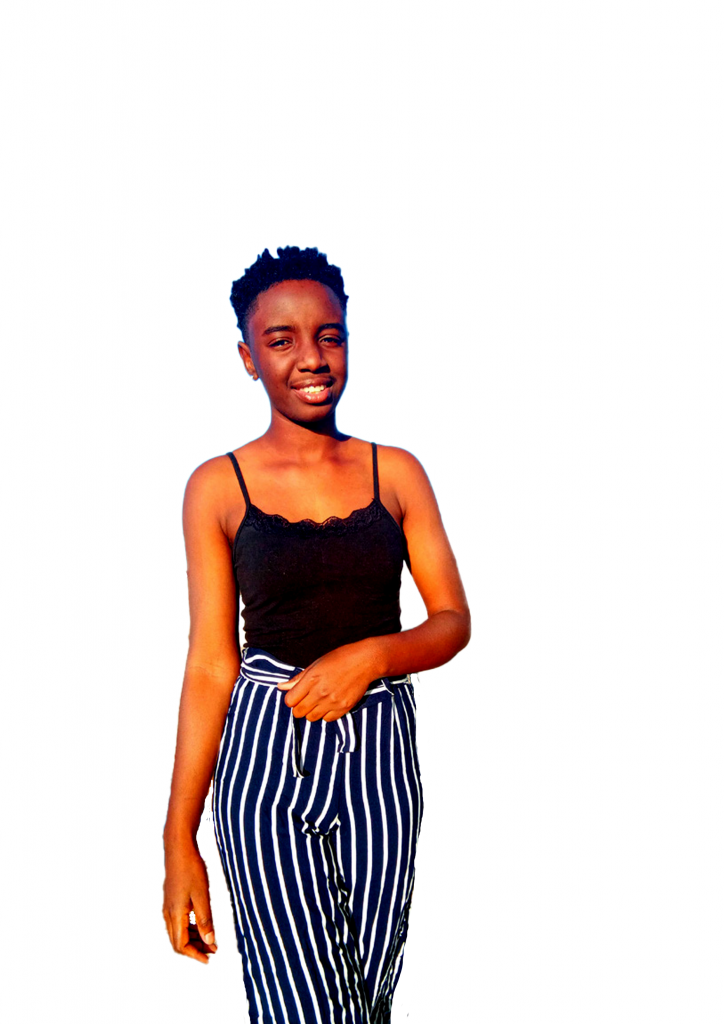
Selma Lukas, a first year Public Health student at the University of Namibia
Rössing’s Environmental advisor, Loide Hausiku, who is one such volunteer, said the programme started towards the end of 2019 after the mentees wrote their final exams and explains how the mentoring process began. “Introductory discussions were held to learn more about one another, establish an understanding of what the mentorship programme is about and what is expected from both sides. There were also discussions about career choices, universities, accommodation and bursaries.”
“There has been a great emphasis on life in general, giving nuggets of wisdom from experiences we had at universities, especially on what to avoid and what to focus on. Our mentees’ studies have been hampered by Covid-19 and in an effort to better support them this has been a topic, moving into e-learning and getting accustomed to the new way of doing things.”
Loide’s mentee is a first-year student at the University of Namibia Oshakati campus, studying towards a Bachelor of Science in Public Health. “I am mentoring her on academics, how to navigate and cope with life at university and how to work to graduate within the study period.”
Loide notes that the mentees are excited because they are able to share ideas and dreams with their mentors, who can assist in streamlining their visions towards a singular goal. This could be an up-coming test, project, or multiple visions to set a career path with academic victories along the way.
Loide hopes to empower a girl-child to dream big and have the confidence to achieve what she has set her mind on. “I hope to make an impact in our community through this initiative, which will see these girls grow, for them to give back and inspire their communities”
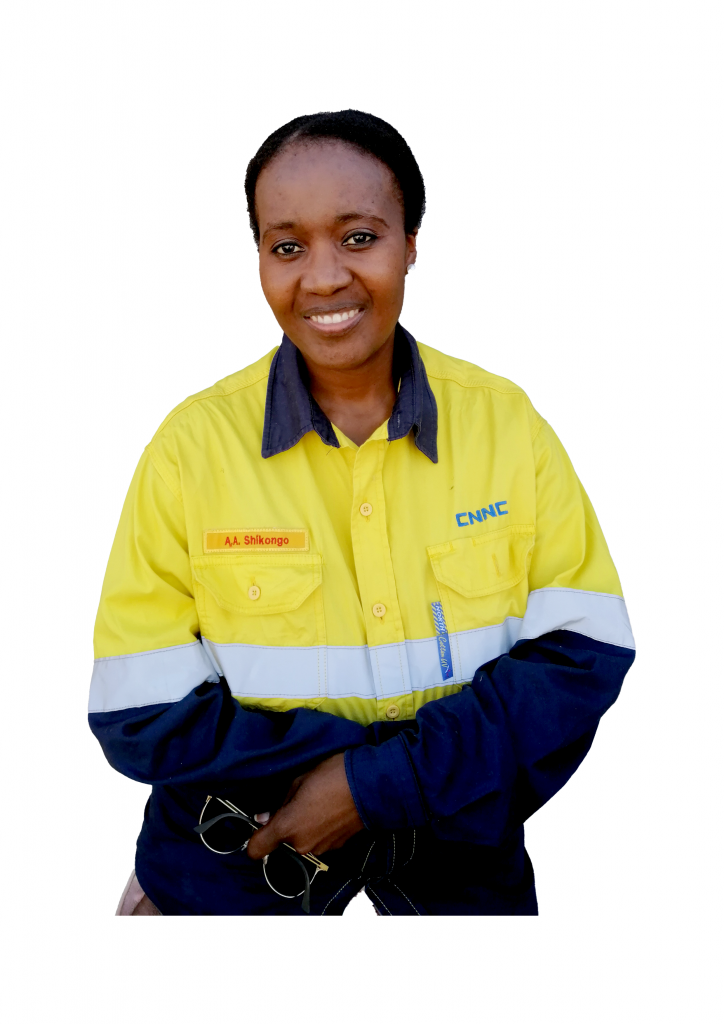
Ann-August Shikongo, Environmental Advisor at Rössing Uranium 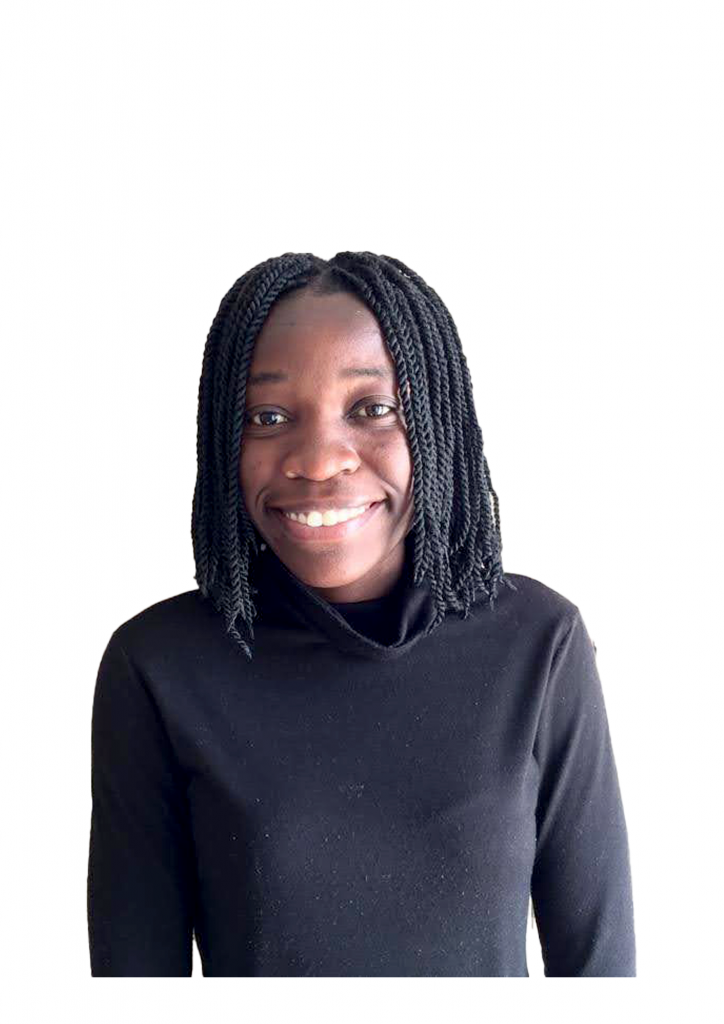
Emily Makina, is a Millwright student at NIMT.
Ann-August Shikongo, who is also from the Environmental department, is a mentor to a level 1 Millwright student at the Namibian Institute of Mining and Technology (NIMT). Ann-August describes the mentoring process as interesting and enjoyable. “I met my mentee, Emily Makina, in November 2019 at the Rössing Foundation Arandis centre.”
“Emily has a passion for science and wanted to pursue a career in biochemistry as her first choice, and tourism as her second choice. In January when the results were released, I contacted Emily to update me on her performance. She achieved 26 points in six subjects and 23 points in one subject. By looking at her results, we had an in-depth discussion on the way forward as her points would not secure her a place at UNAM and the viable option left was to enrol for a tourism course with the Namibia University of Science and Technology (NUST).
However, she told me that she is an introvert and tourism will not compliment her personality and interests, and rather wants to pursue a career as an electrician. This exchange between mentee and mentor prompted Emily to enrol with NIMT at the Tsumeb campus.
I looked at the positive side of her studies and encouraged her to follow her heart and that the electrical field is not limited as one can study further and even become an electrical engineer. During the registration process, she could unfortunately not secure a place in the electrical study field. She rethought her options and enrolled as an apprentice in NIMT’s millwright study field.”
“Most of the students do not have the opportunity for career guidance or counselling, and often end up enrolling for courses that they are not familiar with. This is one reason students drop out of tertiary institutions or change courses due to lack of interest in their first-choice study fields,” she said explaining some of the challenges. Often times, this can result in bursaries being forfeited due to poor performance. Ann-August says she catches up with her mentee once a month to discuss progress and learning challenges experienced as a result of Covid-19 restrictions and motivates Emily to continue with self-study in as much as possible.
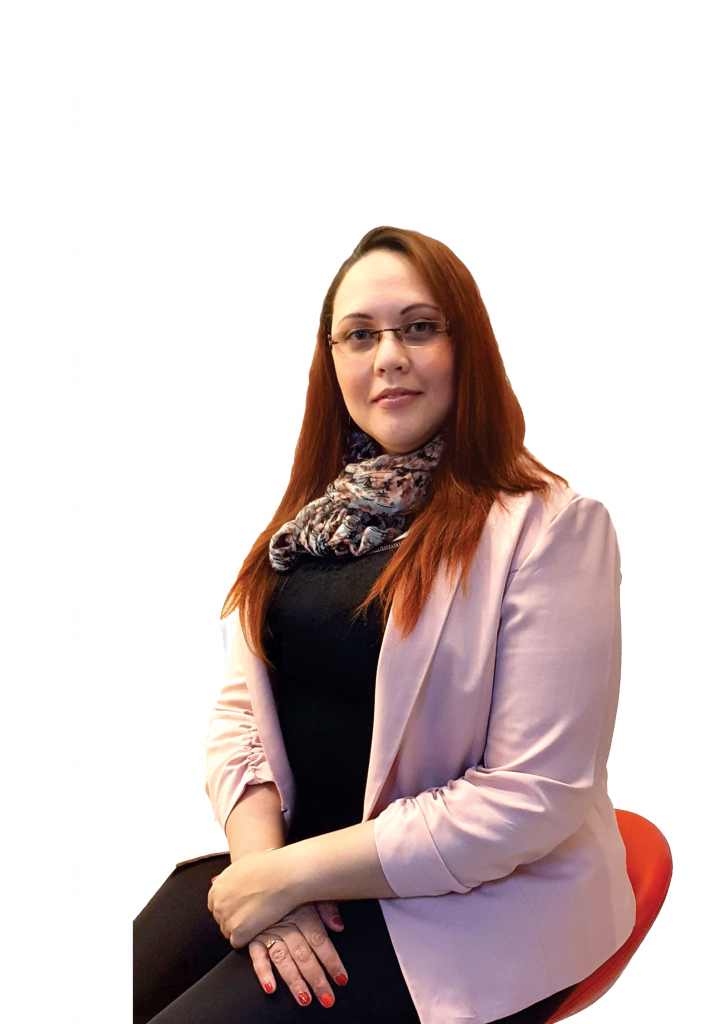
Rössing Uranium Accountant, Eunice van Rooyen 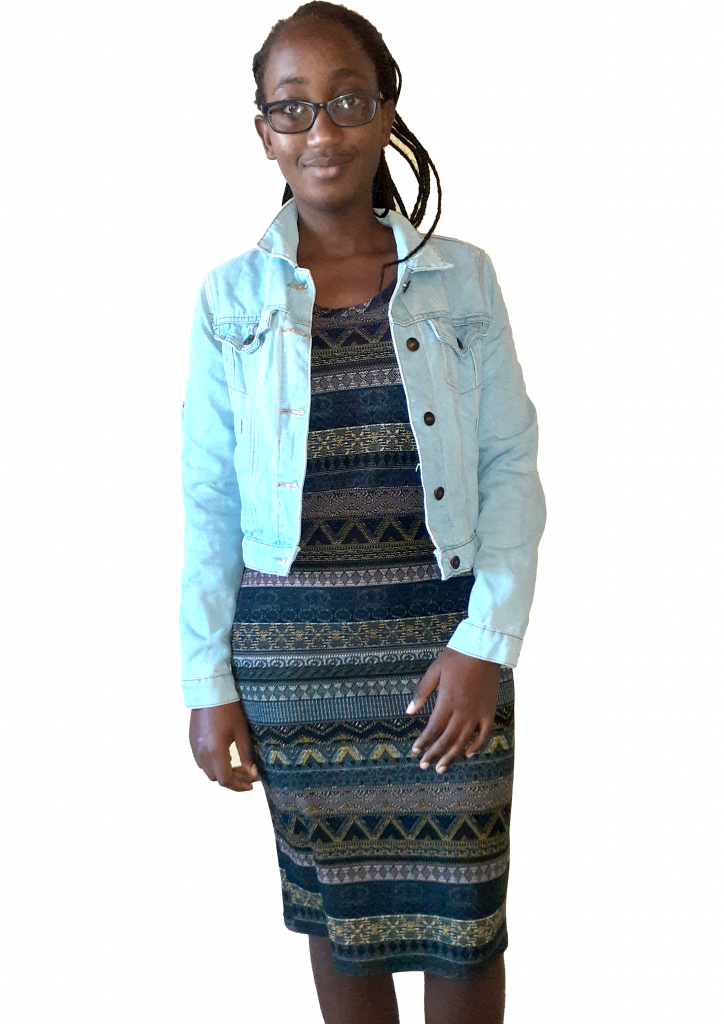
Natango Amadhila tied up with an Accountant at Rössing Uranium.
Eunice van Rooyen, an Accountant at Rössing Uranium, also shared her journey with her mentee, Natango Amadhila. “Our journey didn’t start off as smoothly as we wanted, and we faced a number of challenges along the way, particularly not being able to engage directly.”
Eunice aims to foster a good relationship with Natango so that communication is an open discussion of challenges, and to offer guidance and direction on matters that she has been through, observed or herself has been mentored on that have been successful in her life.
She noted that there is currently a lot of pressure on students to catch-up with school work and to perform well in this unprecedented time.
“However, my mentee is positive and driven to work through the mentoring activities and has obtained assistance that will be of benefit now and in future.”
Covid-19 has brought unexpected challenges in the mentorship programme in direct communication and interaction. Fortunately, the relationships established have still provided the young girls with much needed support during this difficult time.
Contributed by CNNC Rössing Uranium
